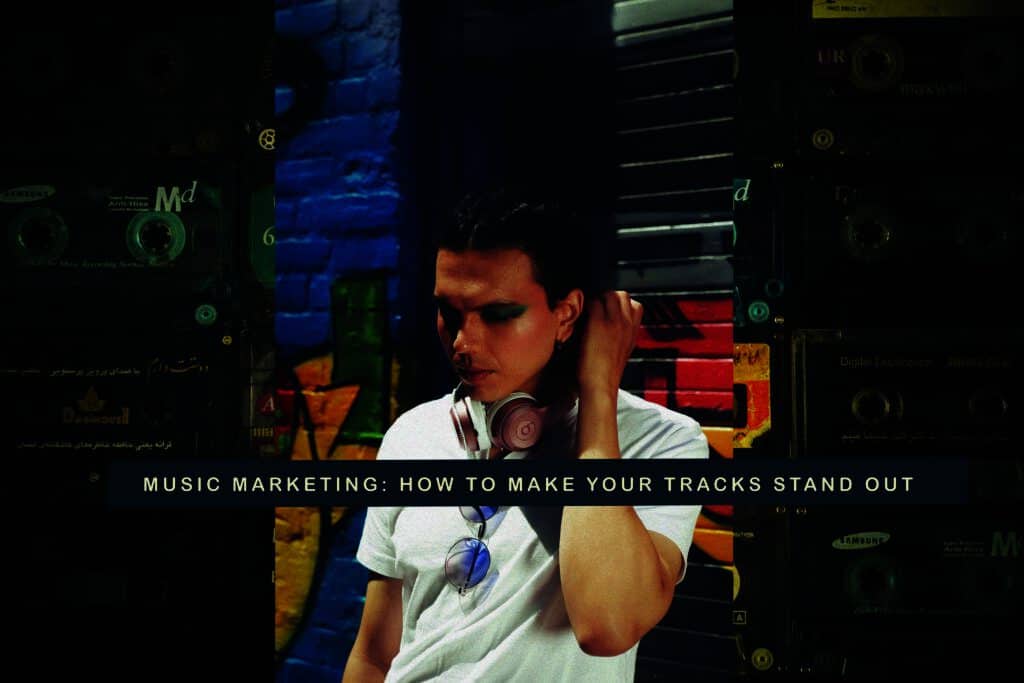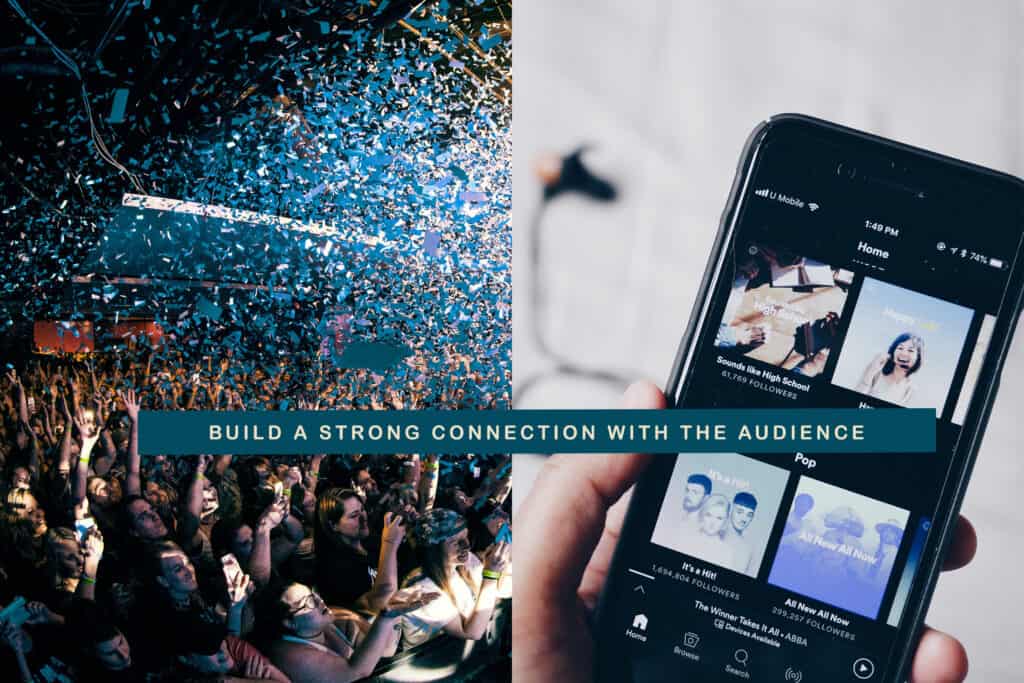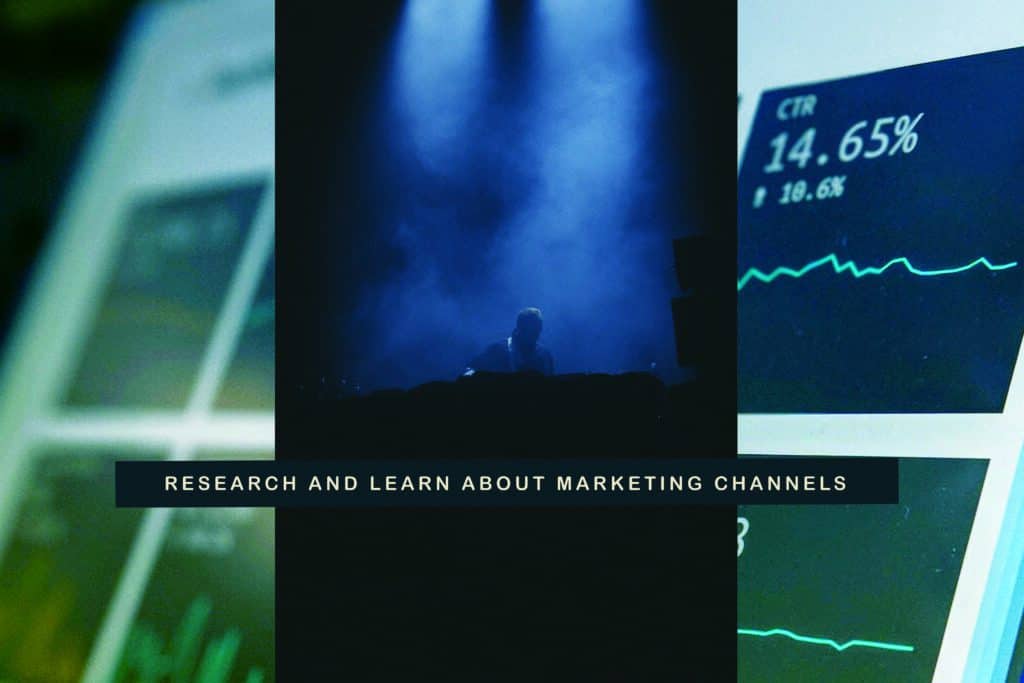


In the ever-evolving music industry, understanding the ins and outs of music marketing is crucial for artists aiming to make their tracks stand out. In this introduction, we will explore the importance of music marketing and its relevance in the digital age. Discover how strategic marketing techniques can elevate your music career and attract a wider audience. Get ready to unleash your creativity and take your musical journey to new heights through effective music marketing practices.
Music marketing plays a crucial role in the success of any music artist or band. It is an essential tool that allows musicians to promote their work, reach a wider audience, and ultimately generate revenue. In today’s digital age, with the ease of access to music through streaming platforms and social media, music marketing has become even more important. Artists need to find unique ways to stand out among the vast competition and connect with their target audience effectively.
To stand out in the crowded music industry, artists must identify their unique selling points. Whether it be their vocal style, lyrical content, or production techniques, having something distinct sets them apart from others. Additionally, paying attention to sound choices and using effective mixing tips can greatly enhance the overall quality of the music and make it more appealing to listeners.
Building a strong connection with the audience is crucial for successful music marketing. This involves understanding who your demographic and psychographic are – knowing their preferences and interests in order to tailor your marketing efforts towards them. Utilizing social media platforms such as Instagram, Twitter, and Facebook is key to engaging with fans on a personal level and keeping them informed about new releases, upcoming shows, or behind-the-scenes content.
Creating memorable experiences for fans is another important aspect of music marketing. Engaging with fans through contests allows them to interact directly with the artist or band, fostering a sense of loyalty and excitement. Collaborating with other artists and influencers can also help expand reach and gain new followers.
To effectively market their music, artists should research and learn about various marketing channels available to them. Paid advertising campaigns can be utilized to boost visibility and reach new audiences while leveraging the power of search engine optimization (SEO) can improve online discoverability.
In today’s digital age, music marketing has become a crucial aspect for artists to gain recognition and success in the industry. With the advancement of technology and internet accessibility, musicians now have various platforms and strategies available to promote their music and reach a wider audience.
Moreover, it is important for artists to continually research and learn about various marketing channels in order to stay updated on current trends and opportunities. Building a strong connection with the audience is also crucial in this digital era – understanding the demographic and psychographic profiles of fans can help artists tailor their marketing strategies effectively.
To further enhance visibility, artists can engage with fans through contests or collaborate with other artists and influencers. These collaborations not only expose the music to a wider audience but also create memorable experiences for fans. Sharing true stories from the personal experiences of artists in overcoming challenges and achieving success can also inspire and resonate with fans.
In the vast landscape of music marketing, one key aspect reigns supreme – standing out. In this section, we uncover the undeniable importance of distinguishing oneself in the competitive music industry. From exploring unique selling points to making wise choices in sound and employing effective mixing tips, we will delve into the crucial elements that can set your tracks apart from the rest.
Genres and Musical Style: The choice of musical genre and style can be a unique selling point for an artist. By exploring lesser-known genres or experimenting with unconventional sounds, musicians can create a distinct identity that appeals to niche audiences.
Personal Narrative and Storytelling: Sharing personal stories and experiences through music can resonate deeply with listeners. Artists who have compelling narratives or unique perspectives can use these storytelling elements as selling points to connect with fans on a deeper emotional level.
Live Performance Experience: Creating memorable live performances can be a unique selling point for artists. Developing visually stunning stage shows, incorporating theatrical elements, or engaging with the audience in an interactive way can make a lasting impression on fans.
Collaborations and Influencer Partnerships: Collaborating with other artists, influencers, or brands can help artists expand their reach and tap into new fan bases. These partnerships provide opportunities for cross-promotion and exposure, enhancing an artist’s unique selling points.
In addition to these points, it is important for artists to continue exploring new avenues for innovation and creativity in order to maintain their uniqueness in the ever-evolving music industry landscape.
According to Music Marketing: How to Make Your Tracks Stand Out, it is essential for artists not only to identify their unique selling points but also convey them effectively through their marketing efforts if they want to succeed in capturing the attention of their target audience (Source).
Sound and mixing play a critical role in music marketing, like adding salt and pepper to a dish – it’s all about finding the perfect balance.
When it comes to music marketing, the choice of sound and mixing tips plays a crucial role in attracting and engaging the audience. The quality of sound, including the instrumental arrangement and vocal clarity, can greatly impact the overall appeal of a track. Additionally, understanding and implementing effective mixing techniques is essential for achieving a balanced and professional sound.
| 1. | Focus on Instrumentation |
| 2. | Prioritize Vocal Clarity |
| 3. | Balance Levels and Panning |
| 4. | Add Effects Wisely |
It is important to note that each genre of music may require different sound choices and mixing techniques. For example, electronic dance music might benefit from complex layering and heavy use of effects, while acoustic folk may require a more minimalistic approach with emphasis on natural dynamics. By understanding the specific needs of your genre and target audience, you can make informed decisions when it comes to sound production and mixing.
Don’t miss out on creating an exceptional listening experience for your audience. With the right choice of sound and mastering techniques, you can elevate your tracks to stand out in today’s competitive music industry. Take the opportunity to captivate your listeners by investing time in honing your sound production skills and delivering high-quality mixes that truly resonate with your audience. Know your audience better than they know themselves and they’ll be begging for an encore.

Building a strong connection with the audience is vital in music marketing. Understanding your demographic and psychographics, as well as utilizing social media platforms, are key components in establishing this connection. By knowing who your target audience is and effectively utilizing platforms like Instagram and TikTok, you can reach and engage with your fans on a deeper level, thus amplifying your music’s impact.
With a keen understanding of your target audience’s demographics and psychographics, you will be able to effectively tailor your music marketing strategies to reach and engage with them. Understanding the demographic data such as age, gender, location, and income level can help identify the specific group of people who are most likely to resonate with your music. Furthermore, by delving into their psychographic information like their beliefs, values, interests, and lifestyle choices, you can gain deeper insights into what motivates and attracts them. By knowing your demographic and psychographics in detail, you can create compelling content that speaks directly to their preferences and connects with them on a personal level.
By delving deep into the demographic and psychographic aspects of your target audience, you can develop a more focused approach towards engaging with them through your music marketing efforts. This knowledge will allow you to create content that resonates with them on a personal level while enhancing the chances of building strong connections. Through effectively utilizing social media platforms that are popular among your target audience, you can share updates about new releases or upcoming shows in a timely manner. Moreover, engaging with fans by responding to comments or organizing live Q&A sessions can strengthen the bond between artist and fan.
To further enhance this connection with the audience, consider organizing contests or giveaways that encourage fan participation. Contests can range from inviting fans to create cover versions of your songs or designing artwork inspired by your music. Collaborating with other artists and influencers who share a similar target audience can also help expand your reach and expose your music to new fans. By tapping into their existing followers, you can leverage their influence to increase your visibility and gain credibility within the industry.
While it’s essential to understand your audience’s demographics and psychographics, it is equally important to stay updated on the latest trends in music marketing channels. Paid advertising and marketing campaigns allow you to reach a wider audience through targeted placements. Investing in search engine optimization (SEO) strategies can improve your online visibility, helping potential fans discover your music more easily. Staying knowledgeable about these various marketing channels will enable you to make informed decisions when planning and executing your music marketing campaigns.
To stay ahead in a competitive industry, it is crucial to have a stunning band website and an online store that reflects the uniqueness of your music brand. A well-designed website with easy navigation features and engaging content can leave a lasting impression on visitors. Additionally, offering exclusive merchandise or limited edition items through an online store can create a sense of urgency among fans, fostering feelings of excitement and fear of missing out (FOMO). By implementing these strategies along with understanding demographic and psychographic information about your target audience, you can stand out in the ever-evolving world of music marketing.
Keywords: know your demographic and psychographic
Using social media platforms can be a crucial part of music marketing in today’s digital age. It allows artists to directly connect with their audience and create a strong online presence. Social media platforms offer numerous opportunities for engagement, promotion, and interaction, helping musicians to reach a wider audience and build a dedicated fan base.
Understanding the diverse features offered by different social media platforms is essential for effectively utilizing them as part of a comprehensive music marketing strategy. Each platform has its own strengths and user base preferences, necessitating research into which platforms will best suit an artist’s target demographic. By strategically using these platforms, artists can maximize their online presence and connect with fans on a deeper level, ultimately boosting their success in the music industry.
When it comes to music marketing, one key aspect is creating memorable experiences for your fans. In this section, we will explore how you can engage with your fans through exciting contests and collaborations with other artists and influencers. These strategies not only help you connect with your audience on a deeper level but also contribute to building a strong and dedicated fan base. Let’s dive into the world of fan engagement and discover the power of unforgettable experiences in music marketing.
By leveraging these strategies, musicians can create memorable experiences that leave a lasting impression on their fans. Such contests not only help in building stronger connections but also increase brand visibility and attract new audiences.
To take your engagement with fans to another level, try collaborating with other artists or influencers who have a similar target audience. This cross-promotional approach can help maximize reach while offering fans unique experiences they won’t find elsewhere.
Engage your audience through creative contests that cater specifically to their interests and preferences. This tailored approach allows you to stand out from your competitors in the music industry while cultivating deeper connections with your fan base.
Don’t miss out on the opportunity to engage deeply with your fans through exciting contests that offer exclusive rewards or experiences. Take action now and create unforgettable moments that keep your audience coming back for more.
Boost your music marketing game by collaborating with other artists and influencers – it’s like adding a splash of colour to a black and white photograph!
Collaborating with other artists and influencers is an essential element of a successful music marketing strategy. By joining forces with fellow musicians or influential individuals in the industry, artists can effectively amplify their reach and gain exposure to new audiences.
Building a network is a significant benefit of collaborating with other artists. By connecting with like-minded individuals, artists can tap into new opportunities and access different fan bases. This expansion of their network allows for increased connections and potential collaborations.
Cross-promotion is another advantage that collaborations offer. Artists can promote their work to each other’s audiences, creating a win-win situation where both parties benefit from increased visibility and exposure. This technique is particularly effective in reaching a wider audience and gaining new followers.
Working with other artists brings fresh perspectives and ideas to a project, fostering creativity and innovation. The fusion of different styles and talents can lead to unique and captivating music that stands out in an oversaturated market. Collaborations provide a platform for artists to experiment and push boundaries.
Partnering with respected influencers in the music industry helps strengthen an artist’s credibility. Being associated with well-known names builds trust among fans and potential collaborators alike. The endorsement of respected influencers enhances an artist’s reputation.
Expanding reach on social media is a vital aspect of music marketing. Influencers often have a large following on social media platforms, providing an opportunity for artists to tap into a wider audience. Collaborative efforts can result in increased engagement, followers, and overall online presence.
By collaborating with other artists and influencers, musicians have the chance to tap into new networks, cross-promote their work, foster creativity, strengthen credibility, and expand their reach on social media platforms by leveraging established influencers’ audiences. Exploring marketing channels is like searching for the perfect chord progression – it takes time, effort, and a whole lot of trial and error.

When it comes to music marketing, researching and learning about various marketing channels opens up a world of opportunities. From paid advertising and marketing campaigns to leveraging the power of SEO, these sub-sections will dive into effective strategies that will make your tracks stand out. So, get ready to explore how these marketing channels can amplify your music and reach a wider audience.
Additionally, it is important for artists to continually monitor the performance of their paid advertising and marketing campaigns. By analyzing data such as click-through rates, conversions, and engagement metrics, musicians can optimize their strategies for better results. This iterative approach allows artists to refine their targeting, messaging, and creative content to maximize the impact of their paid advertising and marketing campaigns. Overall, investing in paid advertising and marketing campaigns is a crucial step in reaching new listeners and expanding an artist’s fan base.
With the ever-evolving digital landscape, music marketing has become increasingly important. In order to stand out in a highly competitive industry, artists must leverage the power of SEO. Search Engine Optimization is a strategy that helps improve the visibility and ranking of a website on search engine results pages. By optimizing their online presence, musicians can increase their chances of being discovered by potential fans and industry professionals.
Utilizing SEO techniques can greatly benefit artists by improving their online presence and reach. By implementing relevant keywords, creating high-quality content, and optimizing their website structure, musicians can ensure that their music is more easily discoverable by search engines. This organic traffic can lead to increased visibility, fan engagement, and ultimately, more opportunities for success.
In addition to keyword optimization and content creation, it’s essential for artists to stay up to date with current SEO trends and practices. This includes leveraging the power of SEO, keeping track of algorithm updates from search engines like Google, and implementing strategies such as link building and social media integration. By staying informed and adapting their marketing efforts accordingly, musicians can effectively leverage the power of SEO to reach a wider audience and achieve their goals in the music industry.
A stunning band website and store has the power to make your tracks stand out in the music marketing landscape. By utilizing an effective online presence, you can attract and engage a wider audience and provide a seamless platform for fans to discover, purchase, and support your music.
Your website and store serve as a centralized hub where fans can learn more about your band, listen to your tracks, and easily purchase merchandise or tickets to your shows. It is a powerful tool that can elevate your brand and create a memorable experience for your audience.
By having a visually appealing and user-friendly website, you can capture the attention of potential fans and keep them engaged. Utilizing professional design elements and intuitive navigation, you can create a visually stunning experience that reflects your band’s unique style and aesthetic. Additionally, having a well-organized store allows fans to easily browse and purchase your music, merchandise, and other offerings, further increasing revenue opportunities for your band.
Moreover, a well-crafted band website and store provide a sense of credibility and professionalism. It demonstrates to fans, industry professionals, and potential collaborators that you are serious about your craft and have put thought and effort into your online presence. This can help attract partnerships, press opportunities, and other collaborations that can further elevate your band’s visibility and success.
✅ Creating a strong connection with the audience is crucial for standing out in the music industry. (Source: Team Research) ✅ Quality music is now the baseline requirement, and incorporating novelty elements can make it unique and appealing. (Source: Team Research) ✅ Engaging with the audience during live performances can create a memorable experience for fans. (Source: Team Research) ✅ Exploring new marketing channels, like TikTok, can help reach a younger audience. (Source: Team Research) ✅ Traditional marketing tactics, such as direct mail, can still be effective and underutilized among musicians. (Source: Team Research)
In today’s music industry, up and coming musicians can make their tracks stand out by creating great music that appeals directly to their audience’s tastes and senses. They should consider incorporating novelty elements into their music to make it unique and appealing.
Building a stronger relationship with the audience is crucial. Musicians should understand their target audience and go beyond traditional methods of communication. Sending personal videos to new subscribers and providing regular updates relevant to their interests can help foster a stronger bond with the audience. Engaging with the audience during live performances and organizing special events like CD signings can also create a memorable experience for fans.
Musicians should consider exploring new marketing channels, especially if popular platforms like Facebook, Twitter, Instagram, and YouTube are already saturated. Platforms like TikTok, particularly if their music appeals to a younger audience, can provide exposure to a wider audience. Additionally, traditional marketing tactics like direct mail can still be effective and relatively underutilized among musicians.
Beginner producers can make their tracks stand out through effective mixing techniques. Mixing involves making minor EQ and volume adjustments, using effects, and focusing on each element in the mix. It is important to understand the theories behind mixing and familiarize oneself with equalization and frequency ranges. Visualizing the soundstage and placing elements in their own space can also improve the mixdown.
Independent musicians can employ several effective music marketing strategies to promote their music and stand out in the industry. These include creating a music website to serve as a central hub for marketing efforts, sharing music on digital platforms, using social media for promotion, running social media contests and giveaways, building an email list, utilizing music distribution services, starting a YouTube channel, launching outreach campaigns, leveraging TikTok, running paid promotions, collaborating with other artists and influencers, and live streaming.
A solid promotion plan is important in music marketing because it helps build momentum and maximize exposure for an artist’s music. Instead of relying on short-term promotion cycles, a well-thought-out promotion plan ensures that marketing efforts are consistent and strategic, leading to long-term growth and success. It allows artists to allocate resources effectively and reach a wider audience through various marketing channels.





We know how music marketing is challenging. Use our music promotion services to build and grow your audience today!
Artists from all around the world use our Spotify promotion services. With one of the best and safest promotion companies in the industry, you can purchase Spotify plays and raise your social media accounts.
Want your videos to get the attention they deserve? Stand out from the crowd with our YouTube promotion packages. Increase the number of people who watch your videos, and grow followers on your YouTube channel.
With a tailored strategy to increase your audience, we help you form a vivid presence on SoundCloud. We do that, by promoting your content, boosting your socials, and keeping in check your SoundCloud insights.
TikTok is a merry mix of people from all over the world and a home to many musicians for interacting with their fans, making it a great place to share and promote new music. Sign up with us and let us help you promote music on TikTok.
We understand how artists feel after launching an Instagram account: getting new followers can be really challenging. With our social promotion for Instagram, we help you grow your followers and increase engagement on your posts.
When it comes to music promotion, Facebook can prove to be a very powerful tool! With billions of users worldwide, it’s a great way to spread the word on new content and promote yourself in multiple communities at once!

We are an European company specialized in music production & promotion. Made with ♥ by a bunch of wonderful people from Switzerland, Netherlands, and Spain.
Songlifty, make your music stand out
© 2025 SongLifty, powered by SongLifty. All Rights Reserved.
[email protected] | +372 618 8225 | Terms & Conditions | Privacy Policy
We are in no way affiliated with, endorsed by, or connected to Spotify or any other social network.